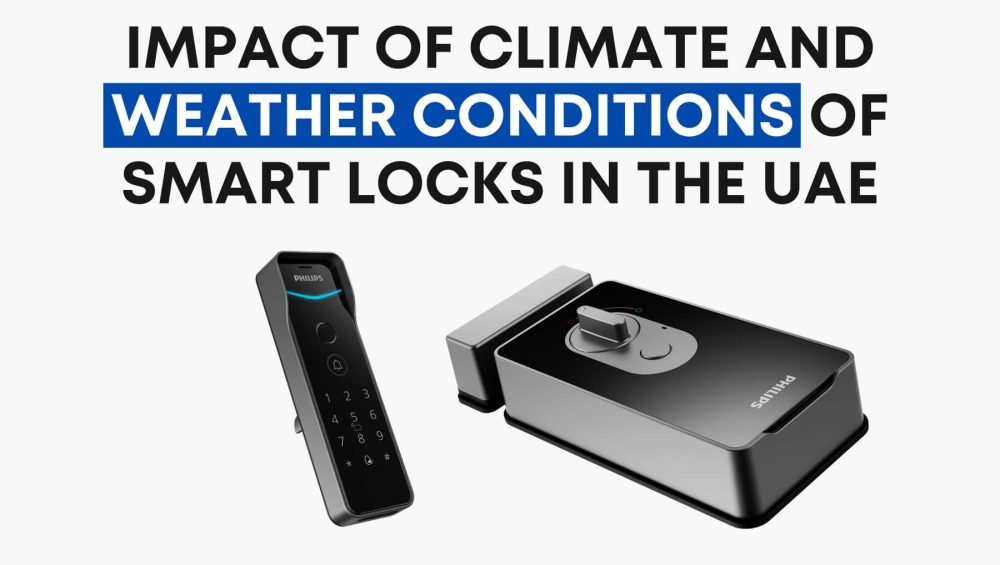In the UAE, where summer temperatures soar above 40°C and sandstorms sweep across cities, technology faces unique durability challenges. At Ojismart, we focus on how smart locks — a cornerstone of modern home security — adapt to these harsh conditions. This article explores how climate impacts smart locks and why choosing the right models is key for UAE homeowners and businesses.
Climate Challenges in the UAE
- Extreme Heat: High temperatures shorten battery life and affect digital components.
- Dust & Sand: Fine particles infiltrate lock mechanisms, disrupting sensors and moving parts.
- UV Radiation: Prolonged sun exposure degrades plastics and rubber, reducing longevity.
These factors highlight why climate-ready smart locks are essential in Dubai, Abu Dhabi, and across the region.
How Smart Locks Respond to Harsh Environments
Modern smart locks, like Philips DDL902 MVP, Philips EasyKey DDL709 FVP, and Oji S617 Waterproof Smart Lock, are engineered to withstand these conditions through:
- Dust-resistant seals that protect internal electronics.
- UV-treated casings that prevent premature fading and cracking.
- Optimized power management to extend battery life despite extreme heat.
- Waterproof or IP-rated designs for doors exposed to the elements.
Benefits of Investing in Climate-Resilient Smart Locks
Enhanced Security
Biometric verification (fingerprint, palm vein, face unlock) combined with RFID, PIN, and app access ensures multiple secure entry points, even in high-traffic areas like villas, gyms, and offices.
Durability in Harsh Weather
Locks like the Oji S617 (IP65 waterproof) are designed specifically for outdoor or aluminum doors exposed to sand and humidity.
Seamless Smart Home Integration
Philips models integrate with smart home systems (Google Assistant, Alexa), ensuring convenient, keyless access even in high-rise apartments.
Real-Time Alerts & Monitoring
Get instant notifications for tampering attempts or low battery, providing peace of mind even while traveling.
Practical Considerations for UAE Buyers
When choosing a smart lock for aluminum or wooden doors in the UAE:
- If your door is under fabrication: Consider Philips 611, Philips 608, or Oji S617 for best compatibility.
- If your door is already installed: Consult Ojismart specialists to tailor the right solution. Not all locks fit retrofitted doors without adjustments.
Conclusion
While the UAE’s climate is tough on technology, smart locks built with resilience in mind remain a valuable investment. By choosing models like Philips 902 MVP or Oji S617, you can ensure security, convenience, and durability even in extreme conditions.
At Ojismart, we provide expert advice and installation tailored to UAE homes and businesses — helping you unlock the future of security with confidence.



